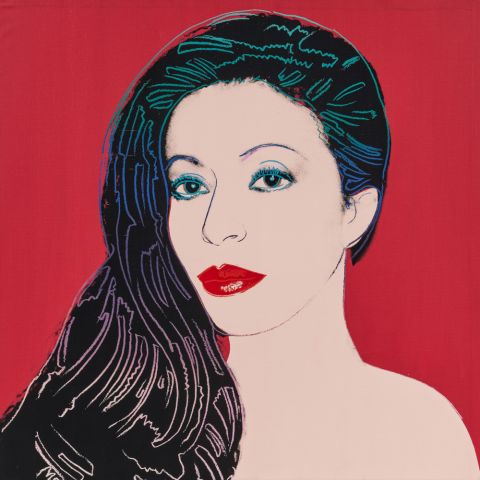
Lot 8 | Käthe Kollwitz | Pietà (Mutter mit totem Sohn)
1867 Königsberg - 1945 Moritzburg
Title: Pietà (Mutter mit totem Sohn).
Date: 1937-1939 (draft).
Technique: Bronze, patinated golden-brown.
Measurement: 40 x 28 x 41cm.
Notation: Signed verso: Kollwitz.
Foundry Mark: Below foundry mark H. NOACK BERLIN.
This bronze is a posthumous casting made between 1972 and 1975. After the death of her father (Hans Kollwitz), the Kollwitz community of heirs had 10 copies cast as part of the so-called Vömel Edition, based on the agreement to terminate the contract between the two parties dated 1 and 3 June 1977. However, only six bronzes are listed in Noack's order books (two each in 1972 and 1973, and one each in 1974 and 1975). The work is accompanied by a letter from the Noack foundry, which can be handed over to the buyer.
Provenance:
- Galerie Vömel, Düsseldorf
- Galerie Wolfgang Ketterer, Munich
- Private collection, Germany (acquired from previous owner in 1978)
Literature:
- Seeler, Annette: Käthe Kollwitz - Die Plastik. Werkverzeichnis, Munich 2016, cat. rais no. 37 II.B., ill.
- One of Käthe Kollwitz's most famous works in a rare and beautiful golden brown patina
- Famous memorial to the victims of war
- A universal symbol of maternal love in perfect formal design
Compassion, humanity and dignity
The name Käthe Kollwitz stands for much more than just an important German artist of the first half of the 20th century. It embodies the brilliant draughtswoman, graphic artist and sculptor as well as the courageous woman who maintained her integrity in times of dictatorship and political upheaval. Her name has become a symbol of compassion, humanity and dignity, but also of artistic resistance to war, poverty and oppression.
When the National Socialists came to power in 1933, Käthe Kollwitz was 65 years old and at the zenith of her artistic career. She quickly came under political pressure: In 1933, she was expelled from the Prussian Academy of Arts, in 1936 she was officially banned from exhibiting, and the following year her works were confiscated from eleven German museums as part of the "Degenerate Art" campaign. Nevertheless, the artist continued to work undeterred in secret, remaining a silent voice of resistance through her art.
"I am working on the small sculpture"
On 22 October 1937 – more than 20 years after the death of her younger son on the battlefields of the First World War – Käthe Kollwitz notes in her diary: "Peter fell that night. [...] I am working on the small sculpture that emerged from the sculptural attempt to make the old man. It has now become something like a Pietà. The mother sits with her dead son lying between her knees in her lap. It is no longer pain, but contemplation." (quoted from Bohnke-Kollwitz, Jutta: Käthe Kollwitz. Die Tagebücher 1908-1943, Munich, 2nd edition, 2018, p. 690.)
This entry was preceded by many years of grief and despair over the painful loss of her son, who had volunteered for the army in 1914 at the age of just 18 and was killed in Flanders in the first days of the war. His death shook Käthe Kollwitz to her core and left a wound that profoundly shaped her life and artistic work from then on.
The sculpture of the grieving mother is one of the artist's best-known works – in 1993, a copy enlarged four times in size was erected as a memorial to the victims of war and tyranny in the Central Memorial of the Federal Republic of Germany in Berlin's Neue Wache.
Mother and Son
Echoes of the iconic interpretation of the Christian Pietà, the Mother of God with her dead son, are unmistakable and give the work its current title – although the artist herself repeatedly emphasised that her sculpture should not be seen explicitly as a religious work.
"Mother with Dead Son" shows a seated old woman holding the lifeless, slumped body of her adult son between her knees. In a calm posture, introverted with her eyes closed, she embraces him tenderly and touches his fingertips in a gentle, loving gesture. There is no longer any despair, no rebellion, but rather a quiet acceptance and gentle letting go.
In her compact, block-like composition, the artist unites mother and son into a silent, intimately connected unity. Nothing refers to the cause of death, nothing to a specific historical context – Käthe Kollwitz's Pietà is a universal symbol of maternal love in its deepest, most existential form, detached from the moment and carried by timeless validity and sublime depth.
Doris Hansmann
Print this lot | Recommend lot |
Conditions of this Lot
32% buyer’s premium on the hammer price
Estimated shipping costs for this lot:
Arrangement after the auction.
Käthe Kollwitz Germany Berlin Secession Modern Art Sculptures 1930s Death Sculpture Bronze Families
More lots which could be of your interest
- Estimate: 60.000 - 80.000 €
03.12.2025 - ca.18:06Modern | Post War | Contemporary | Galerie Thomas | The Jagdfeld Collection | Auction 03.12.2025







